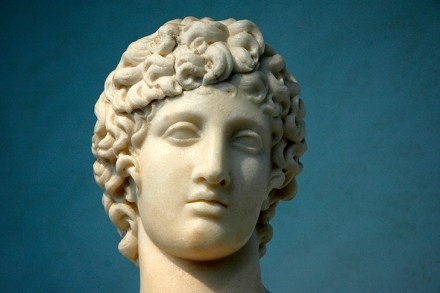The aesthetic prejudice towards white classical statues
In the 1930s curators at the British Museum, under orders from Lord Duveen, a generous donor, scoured and hacked at the friezes and statues of their Parthenon collection. They were trying to remove the smudges and stains thought to be discolouration, to restore the marbles to their original colour — white. But it wasn’t discolouration; it was paint. Though the idea was rejected for years, an arsenal of new technologies — infrared, ultraviolet, X-ray and chemical analysis — has since established that classical sculpture was slathered with the stuff. Though polychromy — the art of painting statues and architecture — was finally accepted in the 1970s, it was proposed over





















